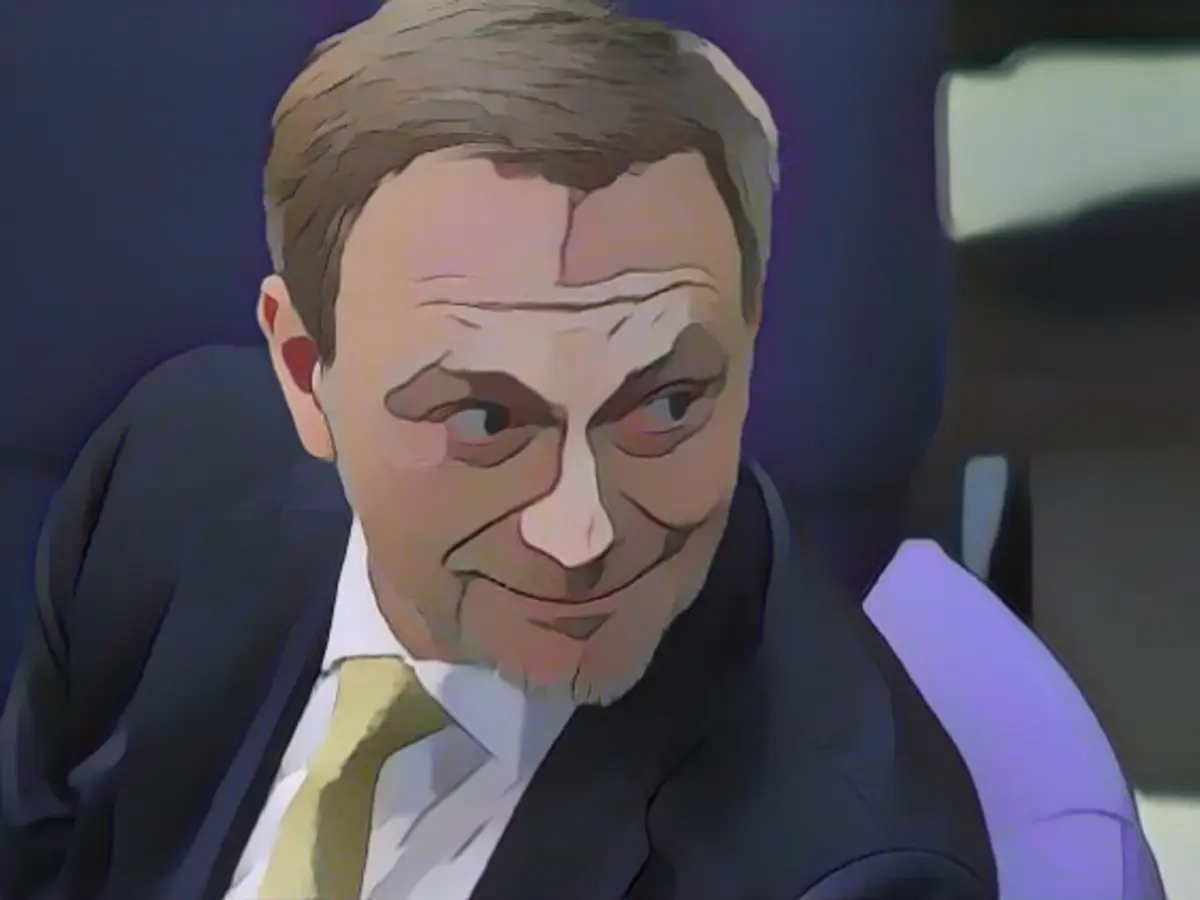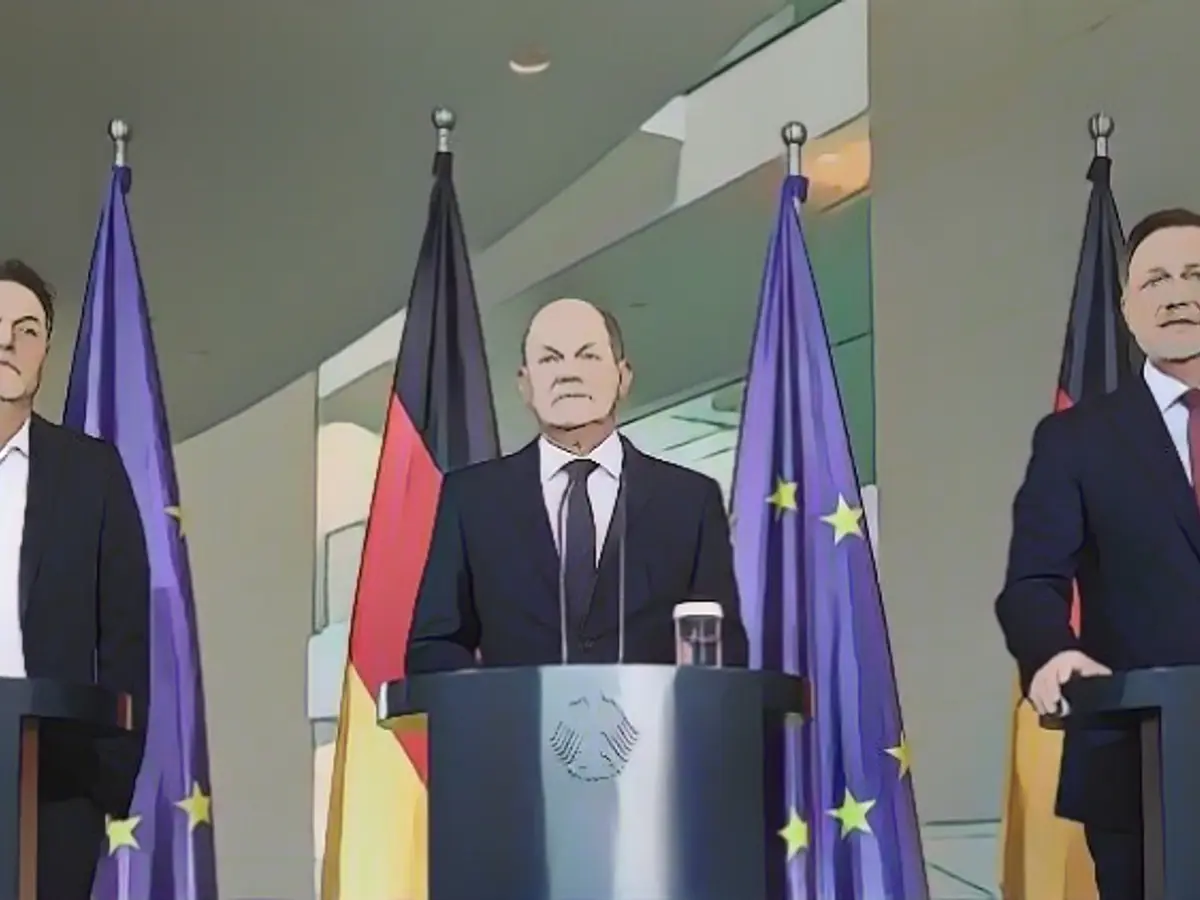If politics functions as it currently is, it may not survive the test of time.
Michael Hüther, the head of the Institute for World Economics (IW), has called for the reform of the debt brake to finance substantial economic restructuring and contribute to reaching climate neutrality by the designated deadline. He criticizes the CDU/CSU and FDP for shying away from the necessary discussions.
What's next after the budget stalemate?
According to Hüther, the budget freeze has led to an increase in unknowns concerning budget policy frameworks. The government must now promptly draft a constitutionally compliant budget for 2024 to avoid further economic paralysis.
Should the debt brake be abolished or kept?
Rather than advocating for the abolition of the debt brake, Hüther seeks to reform it – arguing that the public discourse around the rule is hindering constructive dialogue. The debt brake is a part of Germany's constitutional history, with debt restrictions present in various iterations since the formation of the GDR (East Germany) and the FRG (West Germany).
Is the debt brake functional?
Presently, Hüther considers the debt brake outdated and inconsistent. Limiting new borrowing to 0.35% of GDP lacks both theoretical and empirical validity. Additionally, it must align with the Federal Constitutional Court's climate protection ruling, issued in 2021.
The German Constitutional Court partly invalidated the Climate Protection Act in 2021, as politicians had established targets but not enacted measures to achieve them. This ruling binds politicians to the climate-neutrality goal by 2045, requiring substantial investments.
Transformation investments need a suitable financing solution, such as a climate and transformation fund. This fund's planned activities over several years would benefit future generations, making it appropriate for them to contribute to its financing. The German Council of Economic Experts advocated for this approach in 2007.
However, opposition to this idea arose, arguing that separating government consumption and investment was practically unattainable. The concept of a fixed quota emerged as an alternative solution. Yet, Hüther asserts that climate and transformation investments can be easily identified in the current context.
Other Fiscal Rules and Considerations
Switzerland employs an expenditure rule instead of a deficit rule. The debate also invites questioning whether other indicators, like the interest-tax ratio, should be prioritized. In addition, it would be wise to incorporate an investment clause into the Basic Law. The Federal Ministry of Finance even suggested introducing an investment exception to the European Union's fiscal rules.
Social Policy and the Debt Brake
Neither the relaxation of the debt brake nor the creation of additional leeway in social policy should be pursued. Existing financial commitments, included in the normal budget, should be met with tax and levy revenues, taking into account social spending and defense.
CO2 Pricing in Climate Transformation
Increasing the price of CO2 as a method to control climate transformation is not realistic, according to Hüther, as it does not guarantee climate neutrality by 2045. Measures such as expanding offshore wind energy and improving grid infrastructure are necessary for achieving this goal.
Corporate Taxes and Reform
Germany has relatively high corporate tax rates compared to international standards. While the transformation task necessitates addressing this issue, Hüther doubts that significant reductions in corporate tax rates can be achieved with the existing debt brake conditions.
Rethinking the Debt Brake's Impact on the EU and Germany
Critics worry that reforming the debt brake may have a detrimental impact on the rest of the EU. However, Hüther argues that rather than acting as a detrimental example, Germany's strength can offer a positive impact to the EU, boosting the region's growth. The present stagnation in Germany's economy, with growth expected to remain at under half a percentage point by the end of the decade, is not favorable for the EU either.
The connection between fiscal discipline, investments, and intergenerational fairness is crucial. The current debt brake does not account for the full range of factors that contribute to the long-term prosperity of German and European economies. Cautiously rethinking this rule may provide a more effective and balanced approach to sustaining economic growth and addressing climate transformation challenges.








